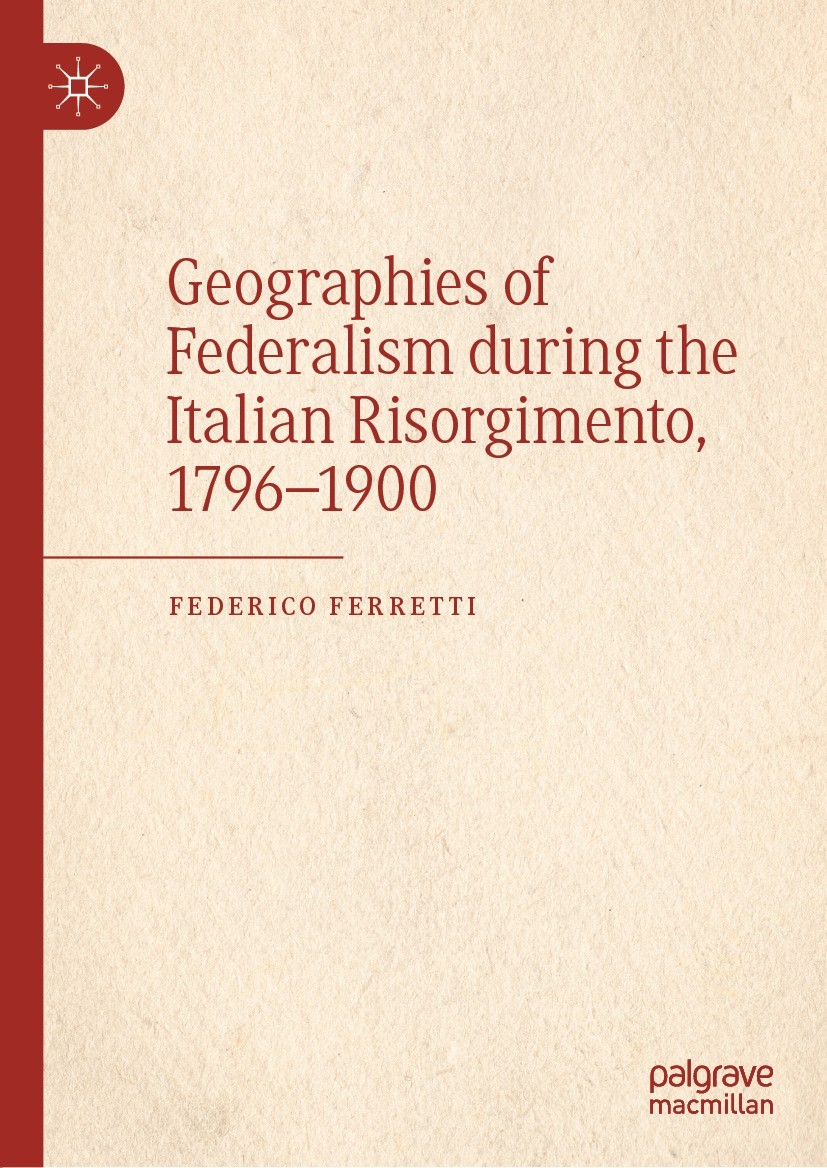| 书目名称 | Geographies of Federalism during the Italian Risorgimento, 1796–1900 | | 编辑 | Federico Ferretti | | 视频video | http://file.papertrans.cn/384/383219/383219.mp4 | | 概述 | Presents the findings from an overdue investigation into the history of the Italian movement for national liberation.Challenges nationalistic commonplaces of the Risorgimento within this complex movem | | 图书封面 |  | | 描述 | .Combining intellectual history, geography and political science, this book addresses the relations between geography and the federalist tendencies of key individuals during the nineteenth-century Italian Risorgimento. The book investigates the development of transnational federalist attitudes amongst a political network of intellectuals, and hones in on several understudied figures who played important roles in the Italian radical movements for national and social liberation. Notably, this includes political geographers who mobilised geographical metaphors to foster change and reorganise territories. The author demonstrates how federalism, anarchism and republicanism were all connected and led not only to autonomy in Italy, but more locally within its regions and municipalities, and more broadly across Europe over the ‘Long Risorgimento’ period. Contributing to current debates on federalism and anti-colonialism, this book will appeal to historical geographers, political scientists and those researching the history of federalism, republicanism and anarchism in Europe.. | | 出版日期 | Book 2022 | | 关键词 | Historical geography; Risorgimento; Radicalism; Federalism; Republicanism; Anarchism; Geography; Nationalis | | 版次 | 1 | | doi | https://doi.org/10.1007/978-3-030-96117-6 | | isbn_softcover | 978-3-030-96119-0 | | isbn_ebook | 978-3-030-96117-6 | | copyright | The Editor(s) (if applicable) and The Author(s), under exclusive license to Springer Nature Switzerl |
The information of publication is updating

书目名称Geographies of Federalism during the Italian Risorgimento, 1796–1900影响因子(影响力)

书目名称Geographies of Federalism during the Italian Risorgimento, 1796–1900影响因子(影响力)学科排名

书目名称Geographies of Federalism during the Italian Risorgimento, 1796–1900网络公开度

书目名称Geographies of Federalism during the Italian Risorgimento, 1796–1900网络公开度学科排名

书目名称Geographies of Federalism during the Italian Risorgimento, 1796–1900被引频次

书目名称Geographies of Federalism during the Italian Risorgimento, 1796–1900被引频次学科排名

书目名称Geographies of Federalism during the Italian Risorgimento, 1796–1900年度引用

书目名称Geographies of Federalism during the Italian Risorgimento, 1796–1900年度引用学科排名

书目名称Geographies of Federalism during the Italian Risorgimento, 1796–1900读者反馈

书目名称Geographies of Federalism during the Italian Risorgimento, 1796–1900读者反馈学科排名

|
|
|
 |Archiver|手机版|小黑屋|
派博传思国际
( 京公网安备110108008328)
GMT+8, 2026-1-20 11:17
|Archiver|手机版|小黑屋|
派博传思国际
( 京公网安备110108008328)
GMT+8, 2026-1-20 11:17


